Neurorehabilitation cost in India for Indian Patients is between Rs.111000 to Rs.148000. Cost for International patients is between USD 2250 to USD 2750.
Patient has to stay in the hospital for 15 days and outside the hospital for 5 days. The total cost of the treatment depends on the diagnosis and facilities opted by the patient.The cost of Neurological Rehabilitation includes:
During neuro rehab, patients are aided in regaining their ability to function and become independent while improving their physical, emotional, and social lives.
Neuro rehab programs may include:
The overall cost of the procedure also varies based on the patient's condition and preferences. Some of these factors are:
Listing approximate price of Neurorehabilitation and some related procedures. The prices may change depending upon the centers and condition of the patient.
| Treatment name | Cost range |
|---|---|
| NeuroRehabilitation | Rs.111000 to Rs.148000 |
| Spine Tumour Surgery | Rs.199800 to Rs.266400 |
| Epilepsy Treatment | Rs.146520 to Rs.195360 |
| Deep Brain Stimulation | Rs.377400 to Rs.503200 |
Many skilled professionals are part of the neuro rehab team, including Neurologist/neurosurgeon, Orthopedist/orthopedic surgeon, Physiatrist, Rehabilitation specialists, Registered dietitian, Physical therapist, and Psychologist/psychiatrist.
Listing popular specialists:
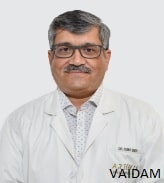
Director, 19 years of experience

Neurology , Headache, Movement disorders – Parkinson’s disease, dystonia, writer’s cramp, Myasthenia Gravis, Nerve and muscle disorders Multiple sclerosis

Senior Consultant, 14 years of experience

Neurological Problems, Neurological dysfunction, Headache

Senior Consultant, 15 years of experience

Stroke, Neurological Problems, Neuro Infections, Demyelinating diseases
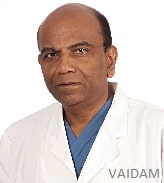
Senior Consultant, 38 years of experience

Parkinson’s disease, Alzheimer’s disease, Stroke, Dizziness/vertigo, Balance disorder, Neck/back pain, Spinal cord disease, Weakness/paralytic diseases, Multiple sclerosis peripheral neuropathy

Consultant, 17 years of experience

Neuromuscular disorders, Brain mapping, Nerve and Muscle Disorders, Peripheral Nerve

Consultant, 42 years of experience

Vagus Nerve Stimulation (Epilepsy) Epilepsy surgery Nerve and Muscle Disorders Neurological Problems Sleep Disorder Treatment Paralysis Peripheral Nerve Fibromyalgia Treatment Epilepsy Treatment Vertigo Treatment Migraine Treatment Parkinson's Disease Treatment Dementia Treatment Alzheimer's Disease

Additional Director, 29 years of experience

Stroke, Headaches, Epilepsy, Multiple Sclerosis, Parkinson’s Disease
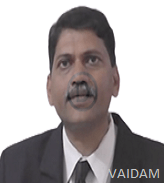
Consultant, 22 years of experience

Interventions, Epilepsy, Migraine, Headaches

Consultant, 18 years of experience

Headache Management Dementia Hypertension Migraine Treatment Paralysis Spondylosis Vertigo Movement Disorders

Consultant, 30 years of experience

Vagus Nerve Stimulation (Epilepsy) Endoscopic Carpal Tunnel Release Laminectomy (Cervical) with Fusion Total Disc Replacement Paralysis Lumbar Radiofrequency Neurotomy Skull Base Surgery Gamma-Knife Radiosurgery Peripheral Nerve Lateral Lumbar Interbody Fusion (XLIF) Laminectomy Attention Deficit Hyperactivity Disorder (ADHD) Treatment ALIF: Anterior Lumbar Interbody Fusion Pituitary Diseases Movement Disorder.

Consultant, 45 years of experience

Deep Brain Stimulation Lumbar Puncture Canalith Repositioning (CR) Gamma-Knife Radiosurgery Brain Tumor Surgery Vagus Nerve Stimulation (Epilepsy) Epilepsy surgery ACL Reconstruction Electroconvulsive Therapy (ECT) Vascular Surgery Insomnia Treatment Neuromuscular Disorders Attention Deficit Hyperactivity Disorder (ADHD) Treatment Video EEG.
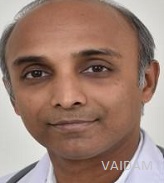
Consultant, 18 years of experience

Nerve and Muscle Disorders Neurological Problems Neuromuscular Disorders Neurological dysfunction Stroke Treatment Headache Management Spinal Disorders Peripheral Nerve Vascular Brain Diseases Vertigo Treatment Epilepsy Treatment Skull Base Surgery Deep Brain Stimulation Lumbar Puncture Canalith Repositioning (CR).
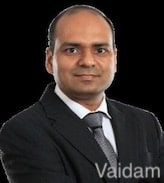
Consultant, 17 years of experience

Paralysis, Acquired Loss of Brain Function, Botox Treatment, Tumors
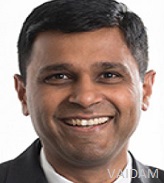
Consultant, 23 years of experience

Deep Brain Stimulation Brain and Spinal surgeries Movement Disorders Parkinson’s Disease.
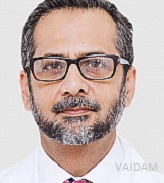
Director, 32 years of experience

<p class="rtejustify" dir="ltr">Dr. Mohit Bhatt specializes in the following:</p> <ul dir="ltr"> <li class="rtejustify">Deep Brain Stimulation </li> <li class="rtejustify">Treatment of Movement Disorders</li> <li class="rtejustify">Parkinson's Disease</li> <li class="rtejustify">Progressive Supranuclear Palsy</li> <li class="rtejustify">Wilson's Disease</li> <li class="rtejustify">Brain Iron Disorders</li> <li class="rtejustify">Neurogenetic diseases</li> </ul>

Senior Consultant, 36 years of experience

Dementia, Movement Disorders, Hypertension, Paralysis, Spondylosis, Vertigo

Consultant, 20 years of experience

Canalith Repositioning (CR), Parkinson's Disease Treatment, Stroke Treatment, Neuromuscular Disorders
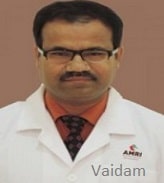
Consultant, 22 years of experience

Seizures Neuropathy Alzheimer's disease Migraine Parkinson's disease
A success rate of 86.9% has been reported.
Our Services for Neurorehabilitation in India
Transparent - Professional - Without Hassles
Neurological rehabilitation is a program which is being designed for those people who are having any disease or disorders of nervous system. This program is being used to improve function and to reduce the symptoms and improves the well being of the patient.
Some of the conditions which can get benefit from neurological rehabilitation are injuries, infections, degenerative disease, tumors or any disorder in circulatory system which can impair the nervous system. Some of the other conditions are structural or neuromuscular disorder such as Bell palsy, cervical spondylosis, carpal tunnel syndrome, peripheral neuropathy, muscular dystrophy and myasthenia gravis.
Neurological rehabilitation patients experience some symptoms such as muscle weakness, pain, difficulty in walking, swallowing, speaking and doing daily activities such as eating, dressing and bathing.
Neurological diseases are diagnosed by using various medical techniques such as electroencephalography (EEG), computerised tomography (CT scan or CAT scan), magnetic resonance imaging (MRI scan), electromyography (EMG), positron emission tomography (PET scan or PET imagery), and arteriogram.
The goal of neurological rehabilitation programe is to help the patients in return to the highest level of function and independence possible, while improving your overall quality of life — physically, emotionally, and socially.
Neurological rehabilitation team consists of Neurologist/neurosurgeon, Orthopedist/orthopedic surgeon, Physiatrist, Internist and some other specialty of doctors such as rehabilitation specialist, dietitian, physical therapist, speech therapist and social workers.
It cannot be cured but you can get assistance in treating the symptoms and restoring the daily functioning.
In neurological rehabilitation programme patient get help with their daily activities such as eating, dressing, bathing, toileting, handwriting, cooking, and basic housekeeping. It includes:






NABH Certified Healthcare Discovery Platform
Vaidam is NABH certified healthcare discovery platform that will connect you to top-notch medical experts, hospitals, wellness options, and trusted travel partners to help identify and make the right healthcare choices.

Researched & Personalized Treatment Plan - Under One Roof
You can search for the best hospitals, read about them, view photographs of the facilities at the hospitals and the places at which the hospitals are located, and check the cost of treatment.

Quality Treatment Within Your Budget
As soon as you post an enquiry, the patient relation team will collect details from you, share them with the doctors and hospitals on Vaidam's panel, and get a personalized treatment plan. We research to get quality treatment within your budget.

Treatment to Travel
Vaidam concierge assists patients, to get medical Visa, the best airline fares and arrangements for your stay. Our concierge also helps you with daily travel, language, and food concerns. Vaidam does everything to be your perfect host. All of Vaidam’s services are free of cost to patients.

International Reach
Vaidam Health has network in 15+ countries, which includes India, Turkey, UAE, Germany, South Korea, Thailand, Malaysia, Spain.
Note: Vaidam Health does not provide medical advice, diagnosis or treatment. The services and information offered on www.vaidam.com are intended solely for informational purposes and cannot replace the professional consultation or treatment by a physician. Vaidam Health discourages copying, cloning of its webpages and its content and it will follow the legal procedures to protect its intellectual property